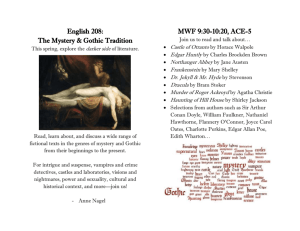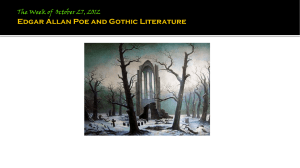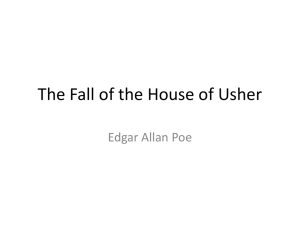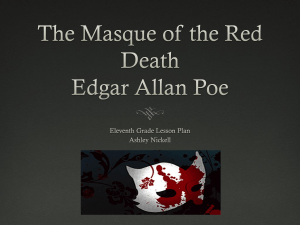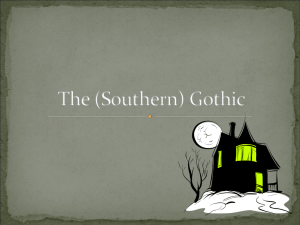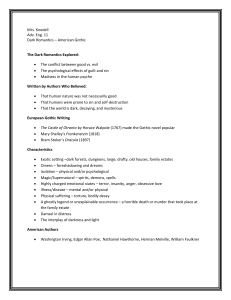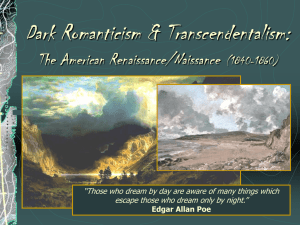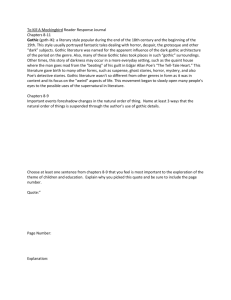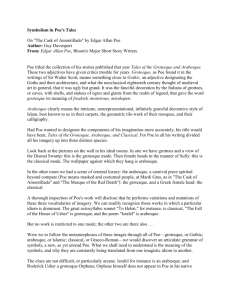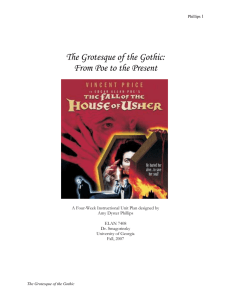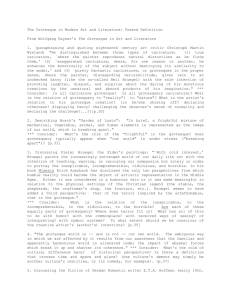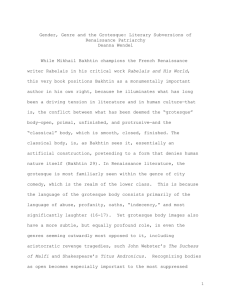File
advertisement
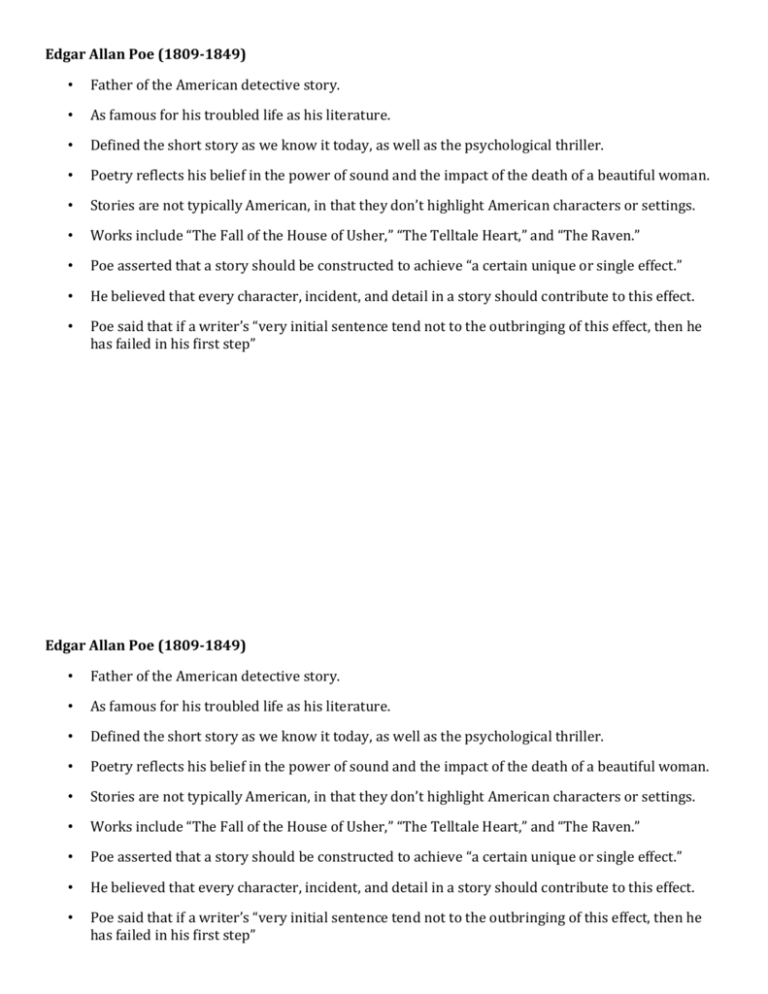
Edgar Allan Poe (1809-1849) • Father of the American detective story. • As famous for his troubled life as his literature. • Defined the short story as we know it today, as well as the psychological thriller. • Poetry reflects his belief in the power of sound and the impact of the death of a beautiful woman. • Stories are not typically American, in that they don’t highlight American characters or settings. • Works include “The Fall of the House of Usher,” “The Telltale Heart,” and “The Raven.” • Poe asserted that a story should be constructed to achieve “a certain unique or single effect.” • He believed that every character, incident, and detail in a story should contribute to this effect. • Poe said that if a writer’s “very initial sentence tend not to the outbringing of this effect, then he has failed in his first step” Edgar Allan Poe (1809-1849) • Father of the American detective story. • As famous for his troubled life as his literature. • Defined the short story as we know it today, as well as the psychological thriller. • Poetry reflects his belief in the power of sound and the impact of the death of a beautiful woman. • Stories are not typically American, in that they don’t highlight American characters or settings. • Works include “The Fall of the House of Usher,” “The Telltale Heart,” and “The Raven.” • Poe asserted that a story should be constructed to achieve “a certain unique or single effect.” • He believed that every character, incident, and detail in a story should contribute to this effect. • Poe said that if a writer’s “very initial sentence tend not to the outbringing of this effect, then he has failed in his first step” Terms to know: • Gothic – Gothic refers to the use of primitive medieval, wild, or mysterious elements in literature. Gothic elements offended eighteenth-century classical writers but appealed to the Romantic writers who followed them. Gothic novels feature places like mysterious and gloomy castles, where horrifying, supernatural events take place. Their influence on Edgar Allan Poe is evident in “The Fall of the House of Usher.” • Gothic Literature includes nameless characters, mystery, mysterious characters. • Grotesque – Grotesque refers to the use of bizarre, absurd, or fantastic elements in literature. The grotesque is generally characterized by distortions or striking incongruities. Grotesque characters are characters who have become ludicrous or bizarre through their obsession with an idea or value, or as a result of an emotional problem. • Doppleganger – a ghostly duplicate of a living person • Motif – a recurrent thematic element in an artistic or literary work. It is a dominant theme or central idea. Terms to know: • Gothic – Gothic refers to the use of primitive medieval, wild, or mysterious elements in literature. Gothic elements offended eighteenth-century classical writers but appealed to the Romantic writers who followed them. Gothic novels feature places like mysterious and gloomy castles, where horrifying, supernatural events take place. Their influence on Edgar Allan Poe is evident in “The Fall of the House of Usher.” • Gothic Literature includes nameless characters, mystery, mysterious characters. • Grotesque – Grotesque refers to the use of bizarre, absurd, or fantastic elements in literature. The grotesque is generally characterized by distortions or striking incongruities. Grotesque characters are characters who have become ludicrous or bizarre through their obsession with an idea or value, or as a result of an emotional problem. • Doppleganger – a ghostly duplicate of a living person • Motif – a recurrent thematic element in an artistic or literary work. It is a dominant theme or central idea.
